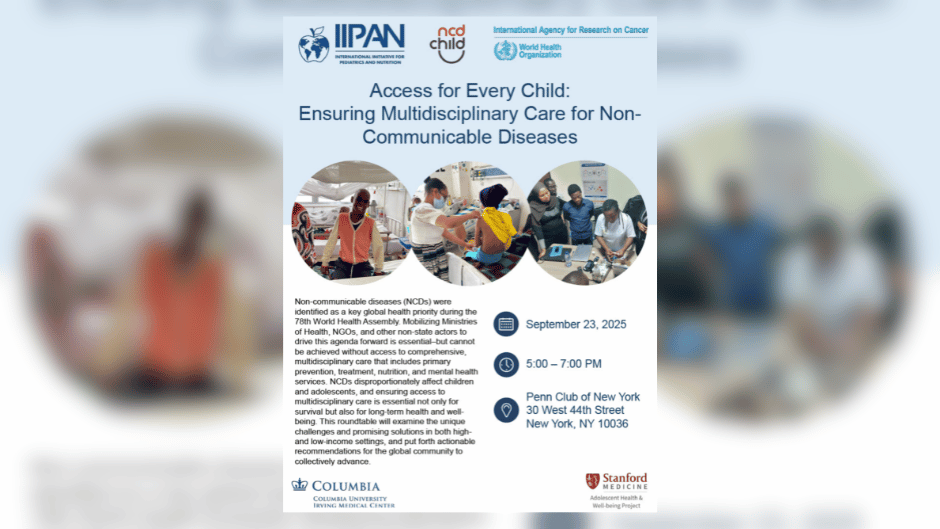
Over 2.1 billion children under the age of 20 are affected by non-communicable diseases (NCDs). Every year, 1 million of these children lose their lives to treatable NCDs. Beyond mortality, NCDs contribute to 174 million years lived with disability in children, causing long-term suffering. To face these challenges, health systems must be restructured to deliver accessible, comprehensive care–including rehabilitation, mental health, nutrition, and psychosocial support– to ensure that children not only survive, but thrive.
Children face stark inequalities in access to care. Approximately 75% of child deaths attributable to NCDs occur in LMICs, where access to medical care, essential medicines, and supportive care is limited. Among children with cancer, 90% of whom reside in LMICs, survival rates can be as low as 20%, compared to over 80% in high-income countries. Children with diabetes face significant challenges as well; pediatric endocrinologists are scarce, and essential medical supplies are often unaffordable or unavailable.
Inequalities are not confined to LMICs. In high-income settings, disparities in access to care persist due to poverty, geography, and gaps in insurance coverage. In the United States, rural children have 36% lower odds of receiving preventive care and a 32% lower chance of maintaining continuous insurance coverage compared to urban children. Even in nations with universal healthcare systems, children from socioeconomically disadvantaged backgrounds experience suboptimal care and face higher rates of emergency department visits, hospitalization, and readmission to hospitals.
Nutrition is an essential, but underappreciated component of NCD care. Incorporating nutritional services into NCD management has been proven to save lives, lower costs,10–12 and lessen the burden of NCDs.13 In children with cancer, proactive nutrition care has the potential to improve survival rates by 30%, 14 while successful obesity treatment during adolescence lowers all-cause mortality by 88%.15 Not only can nutrition counseling save lives, but it can also alter the course of the disease, reducing the likelihood of progressing from prediabetes to type 2 diabetes fourfold. Evidence from New Zealand and Mexico shows that integrating early, individualized nutrition care into health systems can also generate significant cost savings, ranging from NZ$99 for every NZ$1 spent to over US$8.1 billion annually. Despite these benefits, nutrition services remain severely underfunded by governments and there is a global shortage of nutrition professionals.
Collective action from Ministries of Health, United Nations (UN) agencies, and NGOs is essential to ensure equitable access to NCD prevention, treatment, and long-term care for children and adolescents. The Zero Draft of the 78th World Health Assembly underscored NCDs, unhealthy diets, insufficient physical activity, and low health literacy as priority policy targets—integral to national and global strategies for NCD prevention, control, and the promotion of population well-being. The forthcoming Fourth High-Level Meeting at the UN General Assembly presents a critical opportunity to strengthen global policy commitments and advance the integration of comprehensive NCD prevention and care for children and adolescents within national health agendas.
To this end, our roundtable will focus on advancing multidisciplinary care models across all income settings, exploring disparities in access to NCD care, and identifying practical solutions to strengthen NCD care systems. The discussion will result in actionable recommendations for the global community to build health systems that ensure that every child with an NCD has access to comprehensive care.

.png?sfvrsn=6d0e27cd_1)



